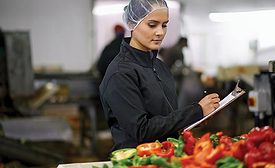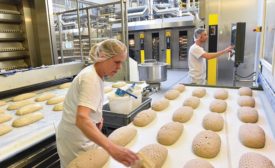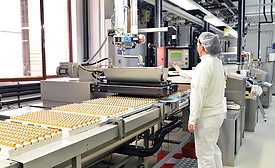Home » HACCP
Articles Tagged with ''HACCP''
Choosing the right cleaning tools
Identify needs to ensure right cleaning and sanitizing equipment, materials choice
December 22, 2020
Food Safety
Do third-party audits need a revision?
Food and beverage companies often view audits as something to pass instead of necessary improvement tools
September 29, 2020
Food Safety
How processors are adapting to FSMA in its early years
What food and beverage manufacturers need to know to stay in compliance
September 1, 2020
Food Safety
The evolution of food safety management systems—from early 1900s to audits today
January 28, 2020
How FSMA impacts new product development
New product development teams must ensure their activities are aligned with the requirements of FSMA.
November 19, 2019
Food Safety
Assessing risk in your operation’s food safety plan
By law, your assessment must evaluate two elements: likelihood and severity of occurrence
November 19, 2019
Never miss the latest news and trends driving the food safety industry
eNewsletter | Website | eMagazine
JOIN TODAY!Copyright ©2025. All Rights Reserved BNP Media.
Design, CMS, Hosting & Web Development :: ePublishing











